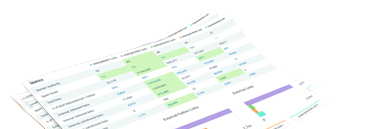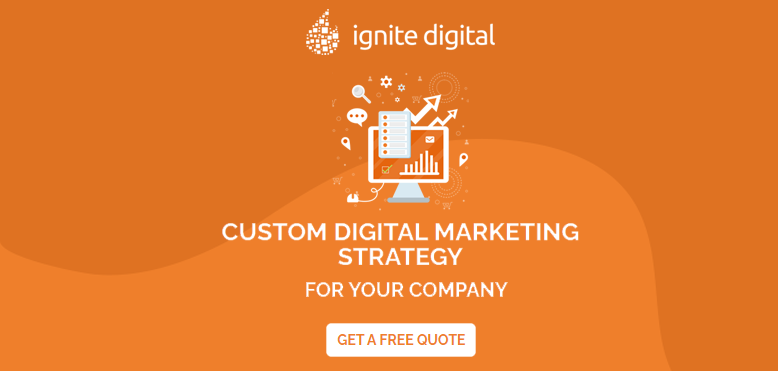Did you know that Google offers a tool that can optimize your campaign budget for you? It’s called Campaign Budget Optimization (CBO), and it can help you maximize your ad spend while avoiding waste. In this blog post, we’ll introduce you to CBO and show you how to set it up. We’ll also share some tips for getting the most out of this powerful tool. So what are you waiting for? Read on!
Why Should You Have A Campaign Budget?
Campaign budgets are important for a number of reasons. First, they allow businesses to plan and track their spending more effectively. Without a budget in place, it can be difficult to determine whether or not a campaign is successful or not. Secondly, campaign budgets help to ensure that campaigns stay on track financially and don’t spiral out of control. Thirdly, campaign budgets can provide valuable insights into a company’s overall marketing strategy and help to ensure that campaigns are aligned with business objectives.
When it comes to setting a campaign budget, there are a few things to keep in mind.
- First, businesses should consider their overall marketing goals. What are you hoping to achieve with your campaign? Once you have a clear understanding of your goals, you can begin to allocate funds accordingly.
- Additionally, it’s important to consider the target audience for your campaign. Who do you want to reach with your message? What kind of media will they be most responsive to? Once you have a good understanding of your target audience, you can begin to craft a campaign that is specifically tailored to them.
- Finally, businesses should also consider the costs associated with running a campaign. What kind of media will you need to purchase? How much will it cost to produce the materials for your campaign? These are all important factors to consider when setting a budget for your campaign.
When it comes to campaign budgets, there is no one-size-fits-all solution. Every business is different, and as such, every campaign budget should be customized to fit the specific needs of the business. However, by keeping the above factors in mind, businesses can develop a campaign budget that will help them to achieve their marketing goals.
Let’s Talk About PPC!
PPC, or pay-per-click, is a form of online advertising that allows businesses to bid on keywords to have their ads displayed when someone searches for those keywords. PPC can be a great way to get your business in front of potential customers who are already looking for what you offer. It can also be a great way to get your business in front of potential customers who are not yet familiar with your brand.
When it comes to PPC, there are a few things you need to keep in mind in order to be successful.
- First, you need to make sure that your ads are relevant to the keywords you are bidding on. If your ad is not relevant, it is not likely to be clicked on, and you will not get the results you are looking for.
- Second, you need to make sure that your ads are well-written and persuasive. Your ads should be clear and to the point so that potential customers know exactly what they are clicking on. If your ad is not well-written, it is not likely to be clicked on, and you will not get the results you are looking for.
- Third, you need to make sure that your ads are targeted to the right audience. If you are targeting the wrong audience, your ad is not likely to be clicked on, and you will not get the results you are looking for.
- Fourth, you need to make sure that your keywords are relevant to your business. If you are bidding on keywords that are not relevant to your business, your ad is not likely to be clicked on, and you will not get the results you are looking for.
- Fifth, you need to make sure that your keywords are well-chosen. If you are bidding on keywords that are not well-chosen, your ad is not likely to be clicked on, and you will not get the results you are looking for.
- Sixth, you need to make sure that your bids are competitive. If you are not bidding enough on your keywords, your ad is not likely to be clicked on, and you will not get the results you are looking for.
- Seventh, you need to make sure that your ads are placed in the right position. If your ad is not placed in a position where it is likely to be seen by potential customers, it is not likely to be clicked on, and you will not get the results you are looking for.
- Eighth, you need to make sure that your ads are rotated. If your ad is not rotated, it is not likely to be clicked on, and you will not get the results you are looking for.
- Ninth, you need to make sure that your ads are updated regularly. If your ad is not updated regularly, it is not likely to be clicked on, and you will not get the results you are looking for.
- Tenth, you need to make sure that your ads are tracked. If your ad is not tracked, you will not be able to see how well it is performing, and you will not be able to improve upon it.
How Does PPC Help With Campaign Budget Optimization
Paid search engine marketing, or pay-per-click (PPC), is a form of online advertising that allows businesses to bid for placement in the sponsored results of a search engine. PPC is an effective way to reach potential customers who are already looking for your product or service.
By using PPC, businesses can target potential customers who are searching for their product or service, and only pay when their ad is clicked. This makes PPC a very cost-effective form of advertising.
PPC can be an effective way to drive traffic to your website, and it can be used in conjunction with other marketing channels such as SEO and social media.
When used correctly, PPC can be a powerful tool that can help you reach your target audience and grow your business.
Google Campaign Budget Optimization
Now that we understand PPC and why your business should have a campaign budget, let’s talk about what is Google’s Campaign Budget Optimization and why you should be using Google Campaign Budget Optimization.
What is CBO, and how does it work
Campaign budget optimization is a feature that Google has rolled out which allows advertisers to optimize their campaigns for their desired outcome, whether that be CPA, ROAS, or Conversions. This tool allows you to set a target budget, and Google will automatically adjust your bids to help you reach your goals. This is a great tool for those who are looking to get the most out of their campaigns and want to make sure they are getting conversions at a lower cost.
Overall, campaign budget optimization is a great new tool that can help you save money on your PPC campaigns while still getting the results that you want. If you are looking to get the most out of your campaigns, this is a tool that you should consider using.
Why you should be using CBO for your business
Campaign budget optimization is a great way for businesses to save money on their Google Ads campaigns. With campaign budget optimization, Google will automatically adjust your campaign budget to make sure you’re getting the most out of your money. This can help you save time and money by ensuring that your ads are always showing in the best possible positions and that you’re not overspending on your campaigns.
How to set up CBO for your business
To set up campaign budget optimization, simply go to your Google Ads account and navigate to the “Campaigns” tab. Then, click on the “Settings” icon for the campaign you want to optimize. From there, select “Budget Optimization” from the left-hand menu. Finally, toggle the “Enable budget optimization” switch to “On.”
If you’re not sure whether or not campaign budget optimization is right for your business, we recommend talking to a Google Ads expert. They can help you understand how campaign budget optimization works and whether or not it’s a good fit for your company.
Tips for getting the most out of your CBO campaign
Campaign Budget Optimization is a great way to get the most out of your advertising budget. By using CBO, you can target your ads more efficiently and reach more of your target audience. Here are a few tips for getting the most out of CBO:
- Make sure you have defined your target audience correctly. CBO is most effective when you target a specific audience with your ads.
- Set realistic goals for your campaign. If you are hoping to reach a large audience with your ads, you may need to increase your budget.
- Test different ad strategies and tactics. Try different combinations of ad copy, images, and targeting options to see what works best for your campaign.
- Monitor your results and adjust your campaign as needed. Be sure to keep an eye on your metrics so you can see how your campaign is performing. If you are not seeing the results you want, make changes to your strategy.
By following these tips, you can improve your chances of success with CBO. With a little effort, you can get the most out of your advertising budget and reach more of your target audience.
The different optimization options that are available to you
There are a number of different campaign budget optimization options that are available to businesses. Here are some Campaign Budget Optimization options your business could choose from:
Your Business Could Optimize Campaigns For Return On Investment (ROI):
Campaigns for Return On Investment (ROI) are important to ensure that a company is getting the most out of its advertising dollars. A well-run ROI campaign can help a company fine-tune its advertising strategy and make sure that it is targeting the right consumers with the right ads. By tracking the results of an ROI campaign, a company can determine which ads are working and which ones need to be tweaked. Additionally, a company can use ROI data to track the effectiveness of its overall marketing strategy.
There are a number of different ways to measure ROI for a marketing campaign. One common method is to track the number of sales or leads generated by the campaign. Another way to measure ROI is to track the number of people who take some desired action after seeing an ad, such as visiting a website or signing up for a newsletter. Additionally, ROI can be measured by looking at the total number of impressions generated by the campaign.
When designing a marketing campaign, it is important to set realistic goals for ROI. A company should not expect to see a huge return on investment from a single ad or even a small campaign. Instead, a company should focus on generating a consistent stream of leads or sales over time. By tracking the results of its campaigns, a company can make adjustments to ensure that it is getting the most out of its advertising budget.
The bottom line is that campaigns for ROI are important for any company that wants to get the most out of its marketing budget. By tracking the results of its campaigns, a company can fine-tune its advertising strategy and make sure that it is reaching the right consumers with the right ads. Additionally, a company can use ROI data to track the effectiveness of its overall marketing strategy.
Your Business Could Optimize Campaigns for Cost per Acquisition (CPA):
Campaigns for Cost Per Acquisition (CPA) can be quite effective in increasing the number of conversions you see on your website. By targeting a specific audience and offering them an incentive to convert, you can see a marked increase in the number of people who take action on your site. Additionally, CPA campaigns can be tweaked and optimized over time to ensure that they are as effective as possible.
If you’re thinking of running a CPA campaign, there are a few things you should keep in mind. First, you’ll need to identify your target audience and figure out what kind of incentive will be most likely to get them to convert. Additionally, you’ll need to track your results carefully so that you can optimize your campaign over time. With a little bit of planning and effort, you can see some great results from a CPA campaign.
Another option is to optimize campaigns for click-through rate (CTR). This can be done by setting a target CTR for each campaign and adjusting the budget accordingly.
Your Business Could Optimize Campaigns for Brand Awareness:
Campaigns for Brand Awareness are important because they help to create a public image for a company or product. They can also increase familiarity with a brand, which can lead to increased sales in the future. Some common methods of advertising for brand awareness include television commercials, online ads, and print ads.
Brand awareness campaigns can be costly, but they are often worth the investment. Companies that invest in brand awareness typically see an increase in sales and brand recognition over time. Additionally, customers who are familiar with a company or product are more likely to make purchases from that company in the future.
When planning a brand awareness campaign, it is important to consider the target audience. The campaign should be designed to reach potential customers who are most likely to be interested in the company or product. Additionally, the campaign should be memorable and eye-catching so that it stands out from other advertising messages that the target audience is exposed to.
A brand awareness campaign can have a major impact on a company’s bottom line. By increasing brand recognition and sales, a campaign can help to improve a company’s financial health. Additionally, a successful campaign can help to build customer loyalty, which can lead to repeat business in the future.
The best way to determine which campaign budget optimization option is best for a business is to experiment with different options and see what works best. There is no one perfect solution for all businesses, so it is important to experiment and find what works best for a particular business.
How You Can Turbo-Charge Your Google AdWords Spend
Google AdWords is a great way to turbo-charge your ad sped. By optimizing your budget, you can make sure that your ads are being seen by the right people and that you’re not wasting your money on ads that no one is going to see.
To get started with Google AdWords, you’ll need to create a campaign. Once you’ve created your campaign, you can start adding keywords. Keywords are the terms that people will use to search for your products or services. You’ll want to add a variety of relevant keywords to your campaign so that your ads will be seen by as many people as possible.
Once you’ve added your keywords, you’ll need to set a budget for your campaign. Your budget will determine how often your ads are shown and where they’re shown. You can set a daily budget or a monthly budget. Once you’ve set your budget, you can start creating your ads.
When creating your ads, you’ll want to make sure that they’re relevant to your keywords and that they’re eye-catching. You’ll also want to include a call to action so that people will know what to do once they’ve seen your ad.
Once you’ve created your campaign and added your keywords, you can start tracking your results. Google AdWords provides a variety of tools that you can use to track your progress. You can see how many people have seen your ad, how many have clicked on it, and how much money you’re spending on your campaign.
If you’re not happy with your results, you can always adjust your campaign. You can change your keywords, your budget, or your ad copy. You can also add negative keywords to your campaign. Negative keywords are terms that you don’t want your ad to show up for.
By using Google AdWords, you can ensure that your ad spend is working for you. By optimizing your campaign, you can make sure that you’re getting the most out of your ad spend.
Takeaway
Campaign budget optimization is one of the best ways to make sure your ads are seen by as many people as possible while still staying within your budget. This is because it allows you to carefully target your ads to the audience that is most likely to be interested in them, which helps you to get the most out of your advertising budget.
There are a few things to keep in mind when you are setting up your campaign budget optimization. First of all, you need to make sure that you set a realistic budget for your campaign. This is because if you set your budget too low, you may not be able to reach your target audience. On the other hand, if you set your budget too high, you may end up wasting money on ads that no one will ever see.
Another thing to keep in mind is that you need to choose the right keywords for your campaign. This is because the wrong keywords can hurt your chances of getting your ad seen by potential customers. Therefore, it is important to spend some time researching the right keywords to use in your campaign.
Finally, you need to make sure that you monitor your campaign closely. This is because you need to be able to see how well your ads are performing so that you can make changes if necessary. If you find that your ads are not reaching your target audience, then you may want to consider changing your keywords or your budget.
Campaign budgets are important for a number of reasons. First, they allow businesses to plan and track their spending more effectively. Without a budget in place, it can be difficult to determine whether or not a campaign is successful or not. Secondly, campaign budgets help to ensure that campaigns stay on track financially, and don’t spiral out of control. Thirdly, campaign budgets can provide valuable insights into a company’s overall marketing strategy, and help to ensure that campaigns are aligned with business objectives. At the end of the day, effective campaign budgeting is key to ensuring that your marketing dollars are well spent. Sign up for our newsletter today for more great tips like this one!




